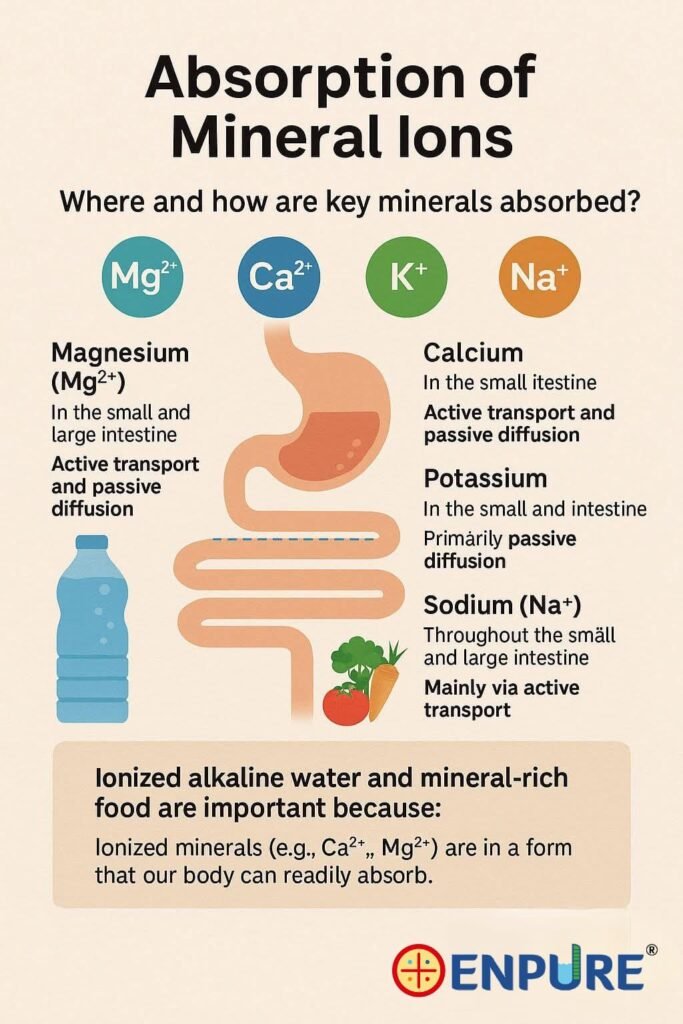Organic vs Inorganic Minerals – Does It Matter?
Organic vs Inorganic Minerals: What Really Matters?
The Science of Mineral Absorption: Ca²⁺, Mg²⁺, Na⁺, K⁺
For centuries, humans have thrived on natural spring water—naturally rich in essential inorganic minerals like:
Calcium (Ca²⁺)
Magnesium (Mg²⁺)
Sodium (Na⁺)
Potassium (K⁺)
These minerals are easily absorbed through the small intestine via highly specialized pathways.
—
How Mineral Absorption Happens
1. Already Ionized for Easy Absorption
In natural water, minerals exist as free ions (Ca²⁺, Mg²⁺), meaning:
No digestion or breakdown needed.
They are immediately ready for absorption in the gut.
2. Specialized Transport Proteins
Specific proteins guide each mineral into your bloodstream:
TRPV6 → absorbs calcium
MagT1 / TRPM6/7 → absorb magnesium
Na⁺/K⁺ pumps → regulate sodium and potassium
3. Efficient Absorption Mechanisms
Passive diffusion handles high concentrations.
Active transport (energy-dependent) ensures uptake even at low concentrations.
—
Organic vs Inorganic Minerals: Should You Worry?
Organic minerals: bound to amino acids (typically from food).
Inorganic minerals: free ions, as found in natural mineral water & alkaline ionized water .
Key Insight:
→ Before absorption, all minerals must be ionized, no matter their original form.
Thus, ionized minerals from natural water are just as bioavailable as those from food.
—
The Takeaway for Enpure Alkaline Ionized Water
Natural, ionized minerals in Enpure Alkaline Ionized Water offer quick, efficient absorption to:
Maintain healthy pH levels
Support nerve and muscle functions
Strengthen bones
Promote optimal hydration
It’s not about where minerals come from—it’s about their ionized form!
Ionized = Ready for Your Body.
#MineralFacts #EnpureAlkalineWater #ScienceOfHydration #ElectrolyteBalance #NaturalMinerals #Enpure_India
By ENPURE

